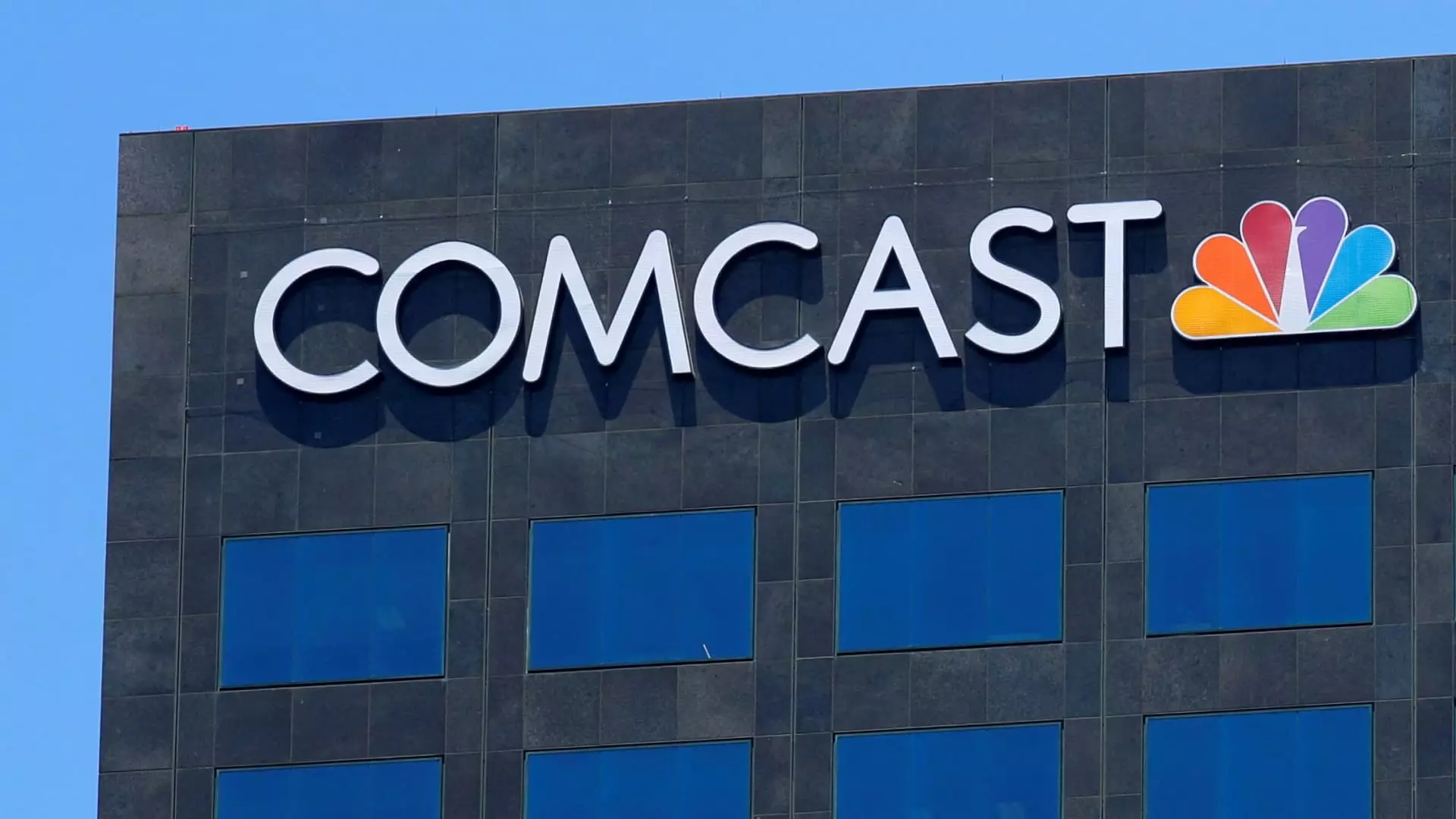In a bold move signaling a shift in the media and entertainment landscape, Comcast is advancing with plans to spin off its cable network channels. This groundbreaking decision, informed by significant industry trends and consumer behaviors, has been confirmed by sources close to the company. The much-anticipated announcement may come as early as Wednesday, with a projected timeline of about one year for the entire separation process.
The newly formed entity will be guided by seasoned executives who bring extensive experience and knowledge of the media industry. Mark Lazarus, the existing chairman of NBCUniversal’s media group, is set to lead this new venture. Under his leadership, Anand Kini, the current Chief Financial Officer of NBCUniversal, will play a pivotal role as both CFO and the operating head of the new company. Notably, Comcast’s Chairman and CEO, Brian Roberts, will retain a voting position in the new entity, although he will not occupy any official role or sit on the board of directors.
This strategic selection of leadership suggests that Comcast aims to harness the insights of its existing talent while invigorating the new entity with fresh possibilities. The chosen leadership will be vital in navigating the complex landscape of potential mergers and acquisitions down the line.
One cannot overlook the underlying motivations that prompted Comcast to pursue this spinoff. The cable industry is experiencing a profound transformation as millions of consumers turn away from traditional pay-TV bundles in favor of streaming services. Comcast has been acutely aware of this trend, having previously invested significantly in its streaming platform, Peacock, which has gained traction in recent years. The separation of cable networks underscores Comcast’s intention to adapt swiftly to changing consumer preferences and explore new avenues for growth.
Moreover, the implications of this spinoff extend beyond immediate financial gains. By establishing a separate entity, Comcast will possess greater flexibility to pursue potential mergers or even sales to private equity firms. Such a strategic maneuver allows Comcast to optimize its resources in line with evolving market dynamics.
Financially, the spinoff is set to be tax-free, meaning shareholders will not bear the burden of additional tax liabilities during the transition. Furthermore, the share structure of the new entity will closely mirror that of Comcast’s, thereby ensuring stability in investor relations. This plan aligns with Comcast President Mike Cavanagh’s earlier remarks about creating a “well-capitalized company” for shareholders, revealing an intention to enhance overall shareholder value.
Interestingly, while the traditional TV networks face challenges due to cord-cutting, they also continue to generate substantial revenue, making them a cash cow for Comcast. Recent reports indicated that Comcast’s media segment experienced a remarkable 37% revenue increase to $8.23 billion in the third quarter, largely attributed to events like the Olympics. This performance reflects the enduring viability of traditional TV networks, indicating that the spinoff is not merely a reactionary measure but a proactive strategy rooted in market realities.
As Comcast forges ahead with this separation, it is important to consider the broader implications for its remaining operations. NBCUniversal will continue to be a powerhouse under its current leadership structure. Influential figures, such as Donna Langley and Matt Strauss, will steer specific divisions, ensuring continuity within core operations including NBC and Peacock. The retention of flagship brands and services suggests a deliberate approach to maintaining NBCUniversal’s competitive edge even as Comcast pivots toward new opportunities.
Moreover, questions linger regarding the operational relationships between MSNBC, CNBC, and NBC News. With formal discussions yet to begin, the company must strategically address potential licensing agreements while ensuring that these partnerships remain beneficial as the spinoff unfolds.
Comcast’s move to spin off its cable network channels represents a significant shift in its corporate strategy, crafted in response to evolving market dynamics and consumer preferences. By charting this course, Comcast not only positions itself for future growth but also sets the stage for a potentially transformative era in the media and entertainment landscape. As the company navigates this complex transition, how it fosters its new entity and reinforces its remaining assets will shape its trajectory in the coming years.


Leave a Reply